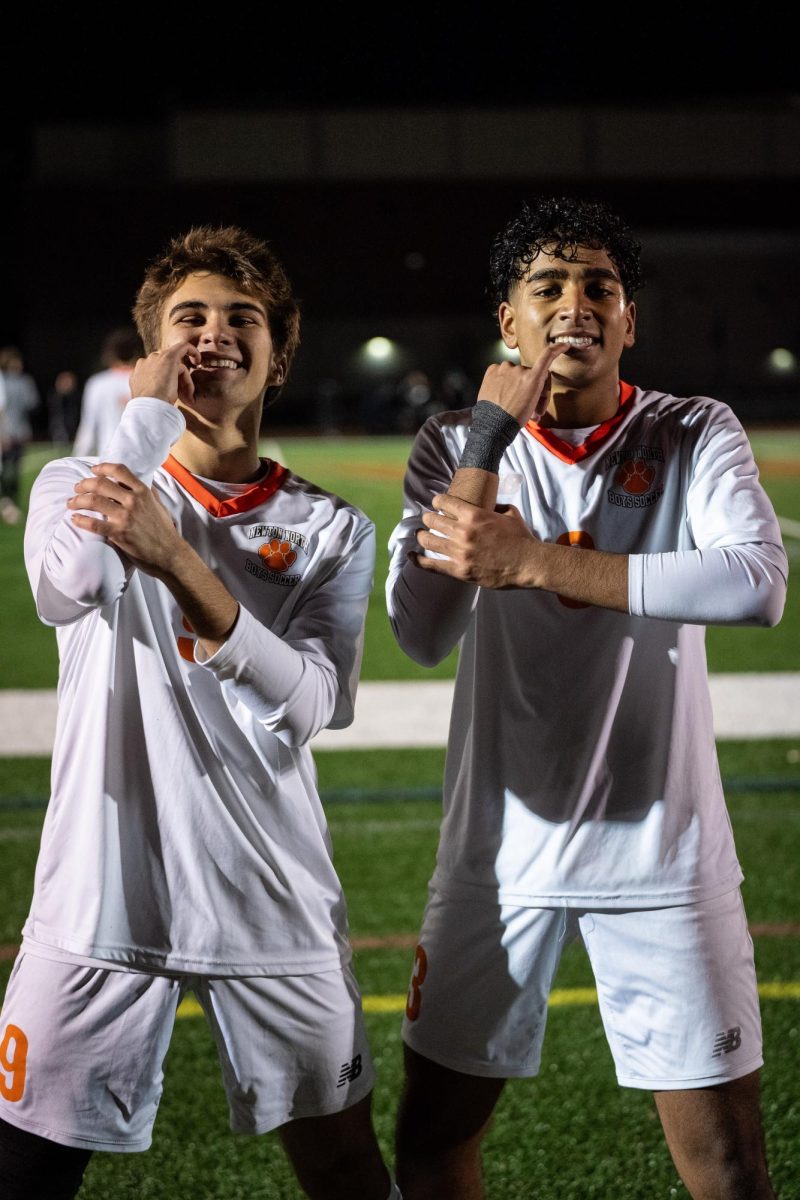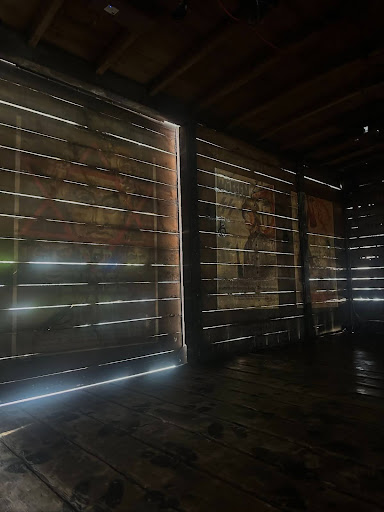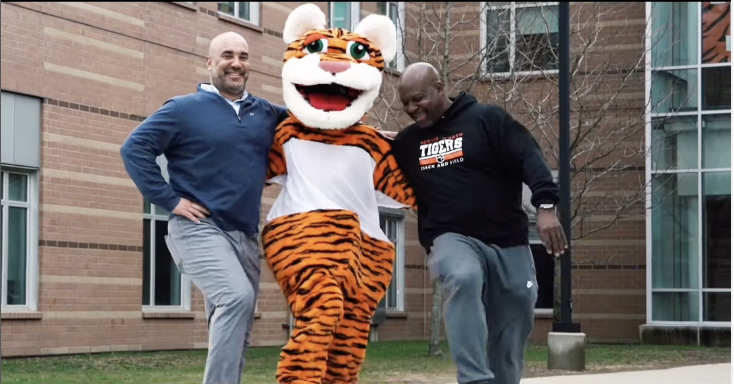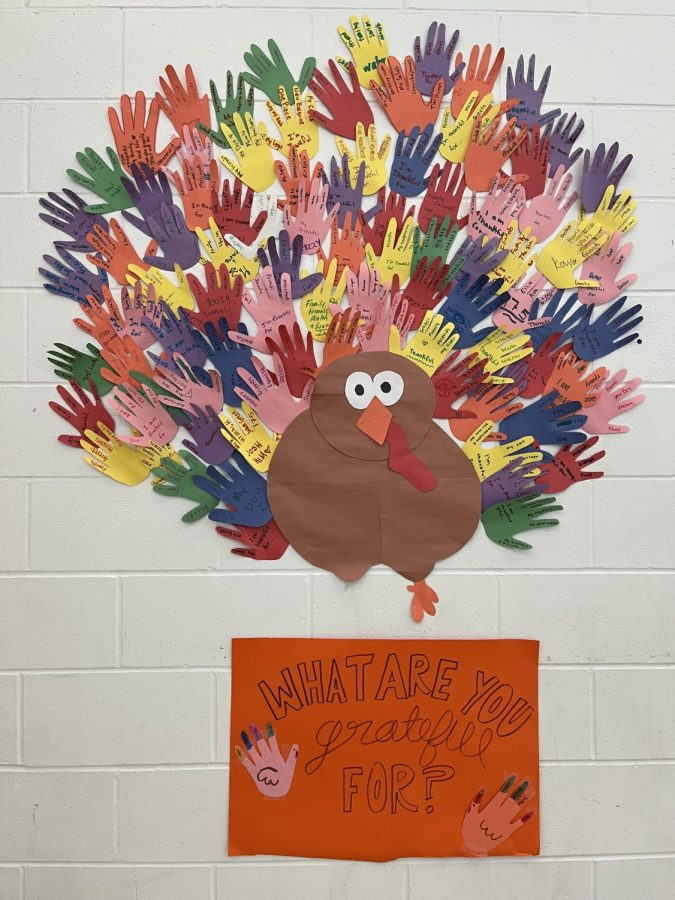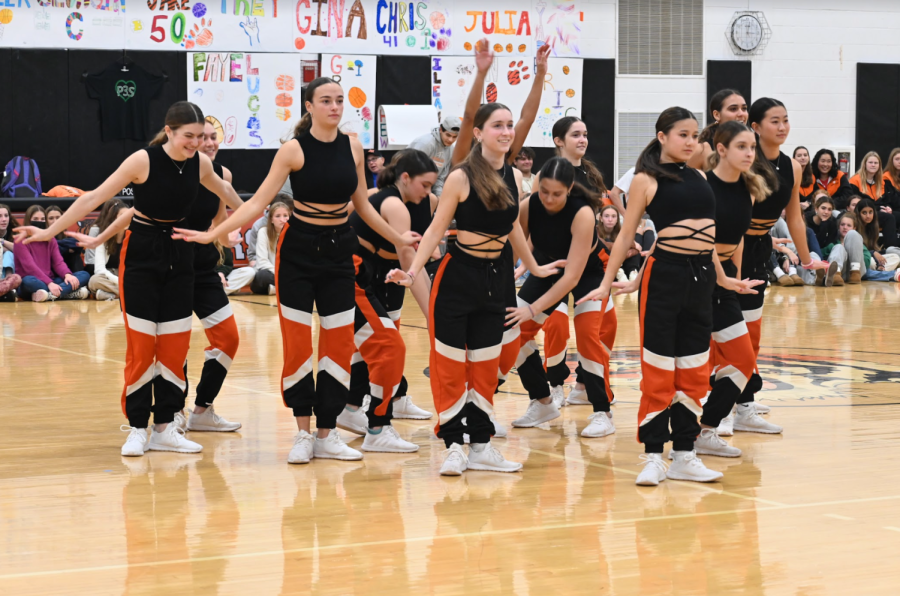A-block
by Isaac Tang
The Boston Palestine Film Festival screened a short filmed and answered questions from the audience in the auditorium during a-block of Middle East Day.
The annual Boston Palestine Film Festival screens Palestinian-produced films and displays Palestinian art and culture.
The short film, Ismail, is centered around Ismail Shammout, an 18-year-old Palestinian boy who was forced to leave his hometown during the 1948 Arab-Israeli War. Set during wartime, Ismail depicts the hardships of war as well the daily lives of refugees.
Karameh Kuemmerle, a representative of the film festival first explained the mission of the Boston Palestine Film Festival. Kuemmerle also talked about prominent Palestinians working in the film industry.
Prior to showing the short film, Kuemmerle showed movie trailers for the 2017 Boston Palestine Film Festival and Wajib, a film about a Palestinian family preparing for a wedding.
Kuemmerle showed another film trailer for The Man Who Stole Banksy, about the theft of Palestinian street art, after the short film was done.
Afterwards, the audience asked different questions, ranging from questions about the film itself to issues regarding current events in Israel.
When asked ,“What it is like being a Palestinian in a Jewish-dominated community like Newton?” Kuemmerle, a Palestinian-American, said that she feels welcome and well-received in the Newton community.
According to Kuemmerle, she wanted the films to encourage students to form their own opinions about these current events. However, she added that she did not want to push any particular opinion onto anyone.
B-block
by Jacques Abou-Rizk
Doctor Elizabeth H. Shlala from the Harvard Center for Middle East Studies looked to inform students and teachers on the Syrian refugee crisis and gave a brief history of the Middle East with North alumni Kim Quarantello and Becca Wadness during b-block of Understanding and Celebrating the Middle East Day.
Shlala encouraged students to participate in helping the refugees, sharing multiple ways students can assist, including volunteer work, donating money to families, and reading multiple points of view on an issue.
“It’s really important to read, read, read,” said Shlala. “The Middle East is an extremely diverse place and I don’t think we see how diverse it is in the media.”
According to Quarantello and Wadness, studying the Middle East has informed them on how United States policies, like the the Travel Ban proposed in February 2017, affect people around the world.
Shlala stressed that though the United States and other countries involved in its conflicts are far away from the Middle East, its influence is still there.
“Right now, you might wake up and not want to go to high school,” Quarantello said, “but the kids in Syria and throughout the Middle East are grateful if they are able to get an education and it makes me happy when we can make that possible for them.”
D-block
by Yesha Thakkar
North students discussed how their connection to the Middle East affects them in life and in school during d-block of Middle East Day. The seven panelists spoke about a number of different topics, North’s inclusive community, media representation, and gender roles.
The panel consisted of seniors Sophie Abou-Rizk, Armin Alirezai, Einat Gavish, Sam Kesselman, Noah Shanshiry, Odin Silawi, and Bella Sullivan.
The panelists agreed that Newton provides a safe, welcoming community for minority groups. In regards to his experience with stereotypes about the Middle East, Kesselman said the community at North “is more knowledgeable about the Middle East than a lot of other places.”
However, they do not always find the same comfort outside of Newton due to the fear of encountering these assumptions in other places. “There’s a fear that we’ll be put in the same group as other Middle Eastern people, which ignores the fact that we are all different individuals,” said Bella Sullivan.
Einat Gavish added, “Sometimes people come up to me, asking, ‘Do you speak Jewish?’ I know that it’s not coming from a place of hate; it’s coming from a place of ignorance.”
The panelists added that their sense of identity is sometimes compromised because of political issues. Kesselman said, “I’m often asked what my opinion is about different political issues in the Middle East. People don’t always realize that I’m not always going to have an opinion about a political issue just because I am Jewish.”
Odin Silawi said, “Generalizing is unfair, and sometimes people make the mistake that the people and the government think alike, which isn’t necessarily true.”
As for media representation, the panelists generally agreed that the Middle East is not always shown accurately in the media. According to Odin Silawi, the Middle East “is much safer than people think.”
Kesselman added, “It’s important to keep in mind that sometimes the media uses news as a publicity stunt, and it’s much safer than it seems on the news.”
The panelists also discussed stereotypes about middle eastern gender roles. “The gender roles and bias that several people think about don’t really exist anymore,” said Silawi. “There is generally a huge push for rights, with both men and women openly protesting gender norms in clothing and the workplace.”
Gavish said, “While the gender norms are definitely changing, they are changing at different paces. The changes are slower in religious communities, for example, whereas gender norms are constantly changing in cultural and economic hubs.”
E-block
by Zoe Goldstein
“Celebrating our differences makes us realize that being different is a great thing,” said Alma Richeh, the executive director of the Center for Arabic Culture in Boston, in her presentation during e-block of Middle East Day.
Richeh’s presentation focused on family, home, and community in Arab culture.
Richeh, who is originally from Syria but has lived in the United States for 10 years, started her presentation by projecting pictures of various people onto the screen. She then asked audience members to predict where the people were from. She said this exercise “highlights that it’s good to research more and to not base judgments on what we see.” The rest of her presentation centered around this theme and emphasized the diversity of Arab culture.
Richeh defined the term “Arab” as a group of people who speak Arabic as their first language and who are “united by culture and history.”
Yet she noted that Arab culture depends on the country and the region. For example, in the Middle East, “not everyone wears the long dresses or covers their heads,” she said, addressing a common stereotype.
“In some places you can find a lady covering her head but also a lady wearing jeans and a light top,” she said. She added that while many Arabs are Muslim, there are also Christian and Jewish Arabs.
Richeh elaborated on the unifying Arab culture—she explained that the Arab community values are generosity and loyalty. Furthermore, for Arabs, family is the “basic social unit” of their culture and that, as such, family ties are very strong.
She also touched on the diversity of the Arab immigrant community in Boston and how many Arab-Americans celebrate Thanksgiving and the Fourth of July. Yet, “Like any other ethnic minority in the United States, Arabs try to preserve their culture and pass it on from one generation to another,” she said.
When asked about the civil war in Syria, she said, “Civil wars and internal strifes happen to almost every country. Having that stain in one’s history should not change the way we perceive that society.”
She also encouraged students to volunteer or intern at the Center for Arabic Culture as it helps people “learn more about the culture, art, and language.”
Outside the auditorium, Hajj Wafa, an Iraqi artist who teaches Arabic calligraphy at the Islamic Society of Boston Cultural Center, wrote people’s names in Arabic calligraphy.
F-block
by Sophie Murthy
Students learned about details of the Syrian war and the Syrian refugee crisis from history teachers David Bedar and Subheen Razzaqui during f-block of Middle East Day.
Bedar showed videos explaining the Syrian war, and Razzaqui showed videos about life as a Syrian refugee.
According to Bedar, the Syrian war is a messy conflict and has been exacerbated by other groups with different opinions and beliefs as well.
Razzaqui talked about the expanse of Syrian refugees who originate from different cultures and regions. “Refugees are coming from all different faiths, and all different countries. There’s this misconception that everyone in the Middle east gets along,” said Razzaqui.
Bedar also touched on reactions from European and Asian countries to the influx of refugees. “It goes for any type of society that there is a real or imagined strain on taking in new people.”
Additionally, students from the International Crisis Club (ICC) spoke about what the club does and how they fundraise. Senior Emma Ross explained how the club raises money by selling various things like popsicles and solar panel lamps.
G-block
by Skyler Bohnert
Students gathered in the auditorium to learn about traditional styles of belly dancing during g-block of Middle Eastern Culture Day.
Belly dance instructor Juliette Cusick, better known by her performing name “Johara” from the Snake Dance Troop, discussed the history of belly dancing and the performance of the dance in modern cultures.
According to Johara, belly dancing has roots in ancient history that could be traced “all the way back to Greek and Roman times to describe what seems to be belly dancing.” She also talked about several previous historical belly dancers like Badia Masabni and Naima Akef.
She talked about the influence of other cultures on belly dancing, like the more Western styles of flamenco and ballet.
Johara also performed belly dancing as a part of her presentation.
Johara performed a variety of traditional Middle-Eastern dances, including a “Wings of Isis” dance, a sword balancing act, stick dancing, and dancing with poi balls, which Johara explained were heavy weights attached to long pieces of rope. She remarked that the most important element to a successful dance is to “just breathe.”
The show concluded with eleven volunteers from the audience going up on stage to learn simple belly dancing moves, ranging from the fluid and twisted movement of snake dance, to the more classical and well-known styles of head sliding and hand shimmying.
“I thought it was a nice look into the cultures of the near east,” said freshman Ruchik Trivedi.
Middle East Day presentations share Middle Eastern culture, experiences
May 11, 2018
Seniors Noah Shanshiry, Odin Silawi and junior Armin Alirezai answer audience questions during d-block of Middle East Day. (Photo by Joelle Sugianto)
0
Donate to The Newtonite
More to Discover













